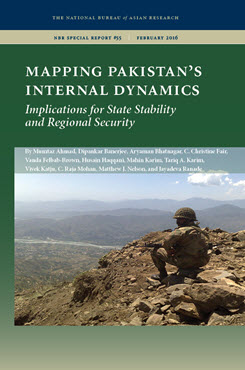Pakistan's Relations with China and Implications for Regional Stability
This essay evaluates the most salient dimensions of the relationship between Pakistan and China, including cooperation on economics, security, and nuclear issues, and discusses relevant challenges facing the partnership.
EXECUTIVE SUMMARY
MAIN ARGUMENT
The relationship between China and Pakistan has grown to encompass the entire gamut of strategic elements, and though described as mutually beneficial and “all-weather,” it is a relationship that is far from being one between equals. Pakistan is an asset to China’s geopolitical and economic aspirations, but Beijing is a key driver in Pakistan’s future security. Pakistan’s continued use of Islamist militants to pursue foreign policy goals will in the future clash with China’s growing concerns about Muslim Uighur separatists, but meanwhile developing uncertainty in Afghanistan nudges China to use Pakistan’s influence with the Taliban to protect its interests in Afghanistan. Pakistan, in turn, relies on China to assist its economic and infrastructure development. China’s willingness to expand Pakistan’s nuclear and missile capabilities, despite rising Islamist radicalization, is fraught with risk.
POLICY IMPLICATIONS
- The growing radicalization of Pakistani society and the armed forces is of serious concern. As the Islamist fundamentalist and extremist elements rise to senior positions in the Pakistan Army, they will acquire control over the country’s strategic nuclear assets. The international community must examine options to avoid such a situation.
- China and Pakistan emerging as the de facto dominant forces in Afghanistan would create instability. China’s interest in containing Islamism would be limited to neutralizing Uighur elements. It is probable that Beijing could acquiesce in an arrangement whereby other extremist forces could use Afghanistan as a sanctuary or base of operations against the U.S., United Kingdom, Europe, and India.
Jayadeva Ranade is a member of the National Security Advisory Board and President of the Centre for China Analysis and Strategy in New Delhi. The views expressed are the author’s own.


